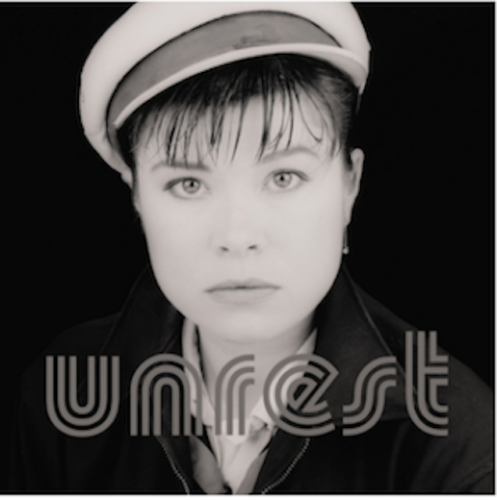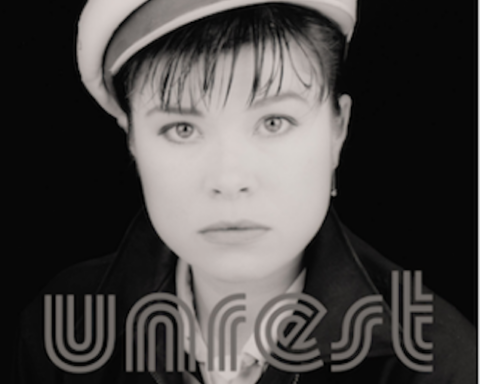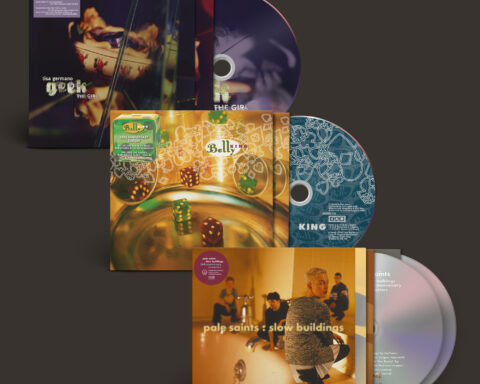Pitchfork have named recent 4AD reissue of Unrest – Perfect Teeth (30th Anniversary Edition) as “Best New Reissue” and have awarded it a 8.4 rating!
Buy Unrest Perfect Teeth (30th Anniversary Editon)
An expanded reissue of the indie-pop icons’ 1993 swan song highlights the contradictions—youthful innocence and teenage lust; scrappy punk and lovelorn ballads—that made the group unique.
It was never just about the music, was it? The affected appreciation for small-time British indie darlings; the androgynous mop-top haircuts and ratty cardigans; the C86 tapes passed between friends; fanzines named after ’60s B-movies like Teenage Gang Debs; record labels called Factory and Caroline and Sarah. All the late nights spent painstakingly cutting and pasting artwork for mixtapes, discussing rare vinyl pressings from Japan and all-female garage-rock bands from the ’60s—those were hours ostensibly spent praying at the altar of something that would become known as “indie rock,” sure, but let’s face it. Every out-of-print 7″ and faded band shirt, every copy of NME and Melody Maker, every hour spent glued to the radio to tape your favorite band’s latest song—they were all in service of the hope that one late night, delirious from the high of subcultural communion, you might just get the chance to walk your crush home.
Unrest intuitively grasped the latent lust in musical obsession: They named one of their earliest songs after Lady Chatterley’s Lover; their first album opened with a cover of the Byrds’ “So You Want to Be a Rock’n’Roll Star” and included an insert that read “YOU ONLY LOVE ONCE!” Mark Robinson was still a high-school student in Arlington, Virginia, when he formed Unrest with drummer Phil Krauth in 1984—many of his first albums used old Wakefield High School yearbook photos for their artwork. He founded a label that he called Teen-Beat, which became a sprawling archive of his work with Unrest: the station wagon they used on their first tours, a party they threw to decorate the covers of their first LP. Being in a band, the Teen-Beat catalog seemed to suggest, was as much about what happened offstage as what made its way to tape.
Unrest’s early albums careened from guttural punk to jangly, Smiths-indebted pop, driven by an improvisational approach and the directive to never play the same song twice. Though they clearly borrowed from the frenetic attack of Dischord bands like Minor Threat and Embrace, Unrest’s distinctly romantic leanings and general levity felt worlds apart from the self-serious hardcore scene happening in nearby Washington, D.C. They often seemed more in step with the twee sounds of the Pacific Northwest, but even then, they dared to consummate the longings that the K Records roster so often left implied: “I said I want to fuck you all the time,” Robinson sang on “Yes, She Is My Skinhead Girl.”
By the early ’90s, Unrest were slowly building an audience of college rock devotees, and labels outside of Robinson’s own Teen-Beat began to take interest. They signed with the storied British imprint 4AD (the contract is documented in the Teen-Beat catalog), who released 1993’s Perfect Teeth, Unrest’s final album. As a belated tribute to the record’s 30th anniversary, 4AD and Teen-Beat have reissued its first vinyl pressing since the extremely limited Record Store Day pressing in 2012, which packaged the album into a series of six 7″ records. Luckily, the songs on the 2025 edition conveniently fit onto one LP, with 11 rarities included on a bonus LP titled “Extra Teeth.”
Perfect Teeth gathered Unrest’s omnivorous collage of ideas and polished it to pop perfection, leaning into their melodic impulses without losing the eccentricities that defined Teen-Beat’s irreverent philosophy. The frenzied guitar riffs of songs like “Light Command” are balanced by oddities like “Food & Drink Synthesizer,” a two-minute instrumental that sounds like a chorus of whirly tubes. The album underscores just how melodious and mature Unrest’s sound had become in the decade since they began. Opener “Angel I’ll Walk You Home” unfolds like a flower bud defrosting in spring: Guitar and bass begin in simplest conversation, mirroring the same minimal chord progression, before Robinson and newly minted Unrest member and former Velocity Girl vocalist Bridget Cross sing the titular phrase in unison, launching into a wordless vocal melody on the closest thing to a chorus. “Breather X.O.X.O.” takes stylistic inspiration from the jazz-infused post-rock coming out of Chicago around that time, the bass carving out the heart of the song as drum fills ricochet in the background, both subtler and more spacious than the sum of its parts. On “West Coast Love Affair,” the bass once more takes the lead before auxiliary percussion and whispered vocal harmonies fill in the song’s crevices. On their final album, Unrest took the irrepressible hooks that had always existed, albeit buried in their amateur recordings; backed by the funding and studio sheen provided by their new label, their melodies are finally fleshed out to their fullest potential.
The bonus tracks cover even more ground: “Isabel” is Unrest’s take on something like trip-hop, layering vocals atop a drum loop and acoustic guitar. The breezily psychedelic “Folklore,” with its winding guitar melodies and circular bassline, rings out like a folk standard for the Creation Records crowd. The reissue also underscores just how much of Unrest’s history was built on in-jokes and cultural shorthands. “Cath Carroll,” a song named after the obscure ’80s mod hero, is only the latest iteration of a love song Robinson would write again and again, first as “Cherry Cherry,” an ode to Edie Sedgwick, then “Cherry Cream On,” then “Suki,” and finally the version that would end up on their final album. (Robert Mapplethorpe’s photograph of Carroll appears on the sleeve.) In compiling so many of these not-so-hidden references, Perfect Teeth is the apotheosis of Unrest’s self-mythology, a best-of record for those who had been following them since the beginning.
In jangle-punk rippers and drum-free ballads alike, Perfect Teeth is driven by the madness of romantic desire. “Angel I’ll Walk You Home” is swooning and starry-eyed, its titular phrase repeated like a mantra. “So Sick” sketches the delirious spiral of unrequited love, circling the same basic desires until his own grammar breaks down (“All I want to do/Is staying up with you”), before finally professing that he would die for his nameless crush. Unrest were earnest but not innocent, and they wrote love songs from the perspective of perpetual adolescence. On “Six Layer Cake,” Robinson sings about intimacy like he’s getting away with murder, with “no hands where they ought to be.”
Perhaps the most enduring love song on the record, though, only took on its deeper significance in retrospect. “Make Out Club” starts simply, with Robinson slowly singing, “You were… the very first one,” before launching into Unrest’s characteristically feverish guitars. The song itches with youthful lust without tipping into lasciviousness, framing “making out all over me” as some kind of transcendent intimacy.
Six years after the release of Perfect Teeth, one fan took the song’s title as inspiration for a secret society of his own. In 1999, Gibby Miller, who would later go on to found Dais Records, started a social network for “indierockers, hardcore kids, record collectors, artists, bloggers, and hopeless romantics.” Users could create profiles under “Boys” or “Girls” and had the ability to add each other to “crush-lists.” Miller named the site makeoutclub.com, after the song that exemplified the desperate need to have your desires reciprocated by someone with the same taste as you.
On Perfect Teeth, Unrest made manifest the extremely uncool desires underpinning the ostensibly jaded world of rock, suggesting that even the most cynical scenesters really just want to belong to the Make Out Club. Robinson and his bandmates were as chameleonic as they were grounded in their roots; so many nights spent cataloguing their references could only lead to such heroic efforts to transcend them. On their final album, Unrest threw caution to the winds and invited twee, funk, hardcore, and jazz into their inner circle, remaking them all in the soft glow of their humbly homespun embrace.










